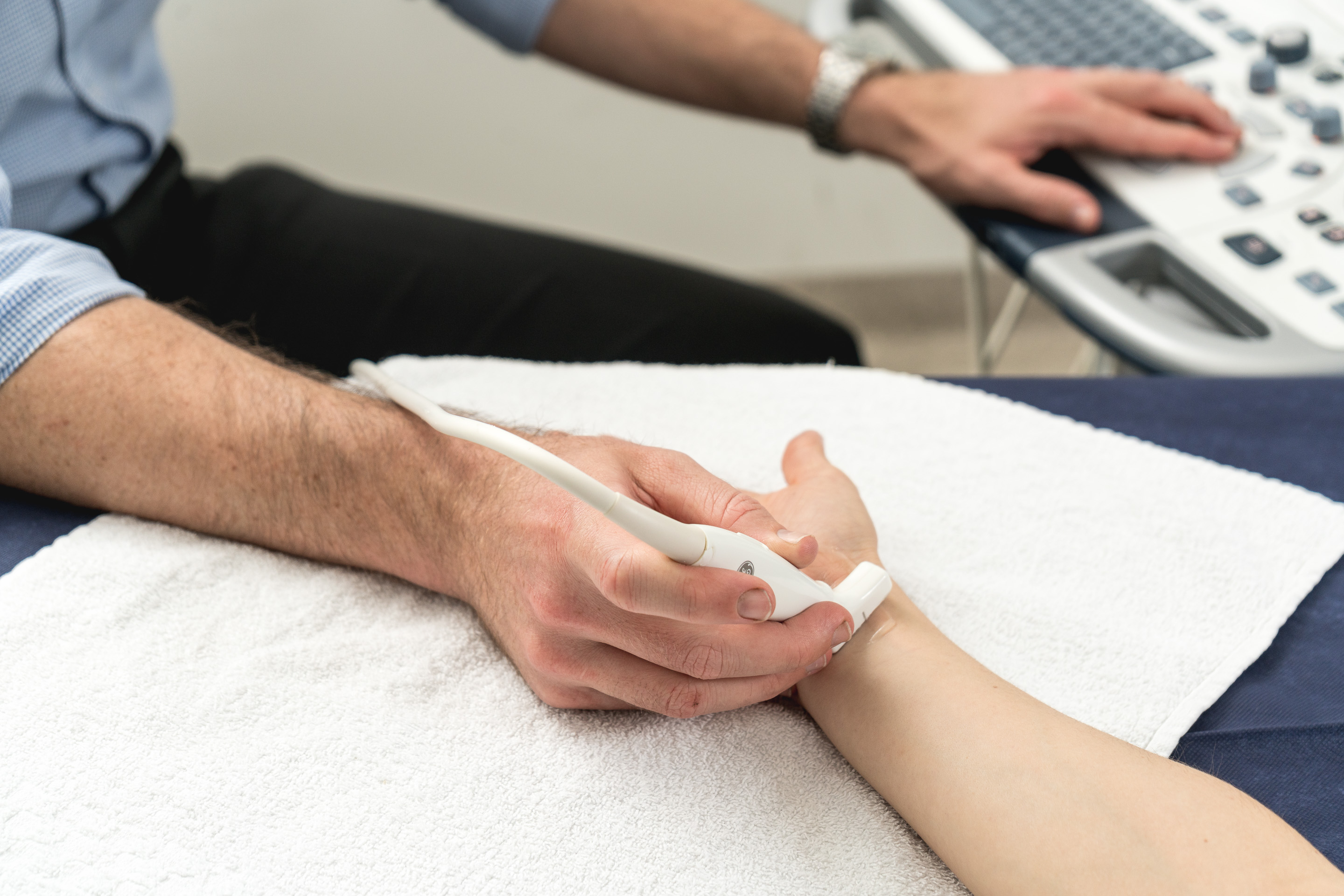
Cortisone Injection
What is a cortisone injection?
Cortisone is commonly used in the treatment of musculoskeletal disorders to suppress inflammation and/or reduce tissue swelling. They are not anabolic muscle building agents.
Why inject cortisone?
- To reduce or eliminate pain associated with a variety of disorders (e.g. tendinopathy, bursitis, arthritis). Although cortisone injections can be very helpful in relieving pain, they generally form only part of the overall treatment plan devised by your doctor.
- To confirm or exclude a specific diagnosis. The precise cause of pain can sometimes be difficult to determine. In this situation, an injection into a specific anatomical space can help to confirm or exclude a diagnosis.
What are the benefits of cortisone injections?
Results vary, but some degree of pain relief occurs in about 70% of cases. For some, this relief is dramatic and long lasting, while for others the benefit is only modest or short-lived and for a minority there is no benefit at all. The benefits begin after about 2-3 days.
Procedure
A doctor specialising in musculoskeletal radiology performs the procedure. The skin is wiped with an antiseptic agent. A thin sterile needle is used to inject a local anaesthetic agent mixed with cortisone into the targeted area under image guidance to ensure accuracy. As a result, the level of discomfort or pain experienced during the procedure is generally only mild. A greater level of discomfort may be experienced if the underlying inflammation is severe.
Are there any risks or side effects?
There are risks or side effects associated with any form of treatment, but significant complications with cortisone injections are rare.
- The most common side effect is a transient increase in pain at the injection site before the cortisone takes effect, and this can sometimes be severe. These ‘flares’ do not occur in all patients and mostly happen in the first 24-48 hours after injection. This can be treated with analgesic measures (e.g. paracetamol or cold packs).
- Occasionally patients develop a red face and feel flushed. This usually occurs on day 2-3 and can last up to 7 days. In some cases it is accompanied by ‘flu’ like symptoms, but you should not have a temperature. This normally clears spontaneously and may be relieved by antihistamines.
- Insulin dependent diabetic patients may notice a moderate rise in blood sugar for up to 10 days after injection. You may need to temporarily adjust your medications as appropriate. Please consult your doctor if concerned.
- Infection is rare, but a potentially serious complication. If you experience fever, localised heat, swelling or increasing pain at the injection site more than 48 hours after the injection, you should consult your doctor without delay. If any doubt remains, antibiotic treatment will be given.
- Cortisone injected directly into a tendon has been reported to weaken and damage the fibres, and thus, carries a risk of delayed tendon rupture.
- All other risks are either very uncommon or rare, but include allergy (to either the antiseptic agents or the injected drugs), and localised bruising. Superficial injections (just under the skin) carry a risk of localised skin and subcutaneous fat atrophy (dimpling), and rarely hypopigmentation (white skin) at the injection site.
Post Procedure
When the anaesthetic wears off you may ache at the injection site.
- Depending on the area being injected, you may need to bring a driver with you to drive you home
- You may experience pain for 48 hours
- Cortisone takes approximately 48 hours to start to work, but may be longer or shorter
- If you are concerned that you are having untoward aftereffects from your injection, please ring Fowler Simmons Radiology on (08) 8229 2110 or your referring doctor
Are there alternatives to cortisone injections?
There are other treatment options available, but you should discuss this with your referring doctor prior to making an appointment. Cortisone injections are optional procedures that carry no guarantee of success. There is no penalty for changing your mind prior to the scheduled injection.
Things we need to know from you
Please inform the radiology staff of any of the following:
- If you have allergies to any medication, anaesthetic agent or X-ray contrast
- If you are feeling unwell or need to cancel your appointment please ring our office as soon as possible on (08) 8229 2100
Note to female patients: If you are pregnant, or suspect you may be, or if you are breast feeding please advise us before your appointment.
Important things you must bring to your appointment
- A referral from your doctor
- Medicare card
- Pension/concession card
- Any previous films/x-rays
- WorkCover/Motor Vehicle Accident claim details (if applicable) i.e. claim number, name of employer or insurer
Concerns
Please feel free to contact our staff at any time if you have any questions or concerns on (08) 8229 2100


Fees and billing
We charge a competitive co-payment for services, fees will vary between different types of examinations.
